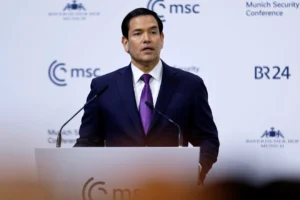Key Points:
- Employee Priorities: Middle Eastern employees prioritize fair pay and career development over corporate ESG initiatives, impacting retention and engagement.
- Corporate Disconnect: While 80% of regional business leaders have a formal sustainability strategy, there is a disconnect between these initiatives and employee values.
- Personalized ESG Engagement: Recognizing diverse employee ESG personas can help companies align sustainability efforts with employee priorities, enhancing engagement and fostering a more sustainable workplace.
ESG Under the Spotlight
The Sustainability Commitment:
In today’s rapidly evolving corporate landscape, ESG (Environmental, Social, and Governance) and sustainability are crucial for long-term business success, influencing policies, investments, operations, and employee engagement. As the Middle East transitions from its traditional reliance on fossil fuels, companies are under increasing pressure to adopt sustainable practices and improve transparency. This is key to enhancing their market reputation and meeting investor expectations.
The “ESG under the spotlight, yet absent from employee priorities.” survey reveals that 80% of business leaders have a formal sustainability strategy, with over half fully integrating it into their operations. This is in line with a regional CEO survey where climate change was identified as a primary concern and a catalyst for change.
ESG initiatives are now intrinsically linked to corporate reputation, employee value, customer engagement, investment access, and operational efficiency. With ESG-mandated assets projected to reach $53 trillion by 2025, the role of sustainability in global investment is undeniable.
Yet Somewhat Absent from Employee Priorities
A Disconnect Between Corporate Initiatives and Employee Values:
Despite being a primary focus for organizations, critical questions remain: Do ESG efforts resonate with employees? Do employees value their organization’s investments and initiatives? How important are these initiatives when employees decide to join or remain with an organization?
Employees often focus on their company’s sustainability practices only after ensuring their financial and personal well-being is secured. Fair and equitable pay has the most significant impact on employee retention. According to the survey, 94% of respondents stated they were likely or very likely to stay with their employers if fair and equitable salary increases were implemented. In contrast, a lower percentage of respondents expressed a willingness to stay for enhancements in societal (83%) or environmental practices (75%).
The PwC Middle East Workforce Hopes and Fears Survey 2024 reiterates this sentiment, with 71% of respondents in the region planning to request a pay raise within the next 12 months.
Sustainability Practices as Drivers of Employee Engagement:
Despite the apparent disconnect, our survey data indicates that enhancing current ESG policies can significantly improve employee retention. With improvements in ESG areas, 82% of employees are more likely to stay with their current employer, and only 3% are unlikely to remain. These enhancements can also sway ‘fence sitters’ to view their current employer more favorably.
Moreover, embedding ESG principles into the organizational culture is key to encouraging employee engagement. Our survey highlights that culture and values (94%) are crucial in retaining employees, closely following career and skills development (96%) and financial rewards (97%).
Building an ESG-focused culture is challenging. As reflected in our earlier publication, “Creating an Institution Fit for Your ESG Aspirations,” success is achieved through setting a tone at the top, communicating urgency and excitement, and leveraging peer-to-peer interactions, among other initiatives.
Change the World - Subscribe Now
A Personalized Approach to Engaging Employees on the ESG Agenda
Appreciating ESG Employee Personas:
In today’s dynamic corporate environment, it is imperative for organizations to understand the need to embed sustainability practices across the employee lifecycle. This ensures engagement at each stage and aligns employee priorities with the organization’s sustainability agenda. Such alignment is essential to cultivate a work environment where employees feel valued and connected to the organization’s mission.
When ESG elements are integrated throughout the employee lifecycle—during onboarding, induction, learning and upskilling, performance management, career progression, recognition, rewards, benefits, and cultural integration—it can create a more engaged and motivated workforce with better ESG outcomes for both the organization and society.
Our research identifies four distinct ESG employee personas based on their attitude toward ESG programs and relative tenure with the firm:
- Sustainability Champions
- Thoughtful Teammates
- Pragmatic Allies
- New Entrants
Understanding these personas allows organizations to design and implement more targeted and effective ESG strategies that engage all employees, fostering a more sustainable and ethically conscious workplace.
Once an organization identifies employee personas, it can recognize the ‘moments that matter’—employee practices that create differentiated approaches—across the employee lifecycle for each persona. A personalized approach to engaging employees on the ESG agenda results in better buy-in and encourages desired behaviors. By focusing on these moments for their employee personas, organizations can transform their ESG strategies into dynamic elements of their operational and cultural fabric, driving not only environmental and social improvement but also enhancing employee engagement and corporate success.
“People are at the center of the ESG agenda. The engagement of employees is critical to progress on the sustainability roadmap. ESG is an emotive topic, and employees respond differently to it and engage at varying levels. Being perceptive of employee sentiments and astutely designing personalized approaches to engage diverse employee groups can ensure that employees feel included and play their part in achieving sustainability goals. It is in the interest of everyone that corporate leaders foster a culture where ESG is a core component of ways of working, and all employees feel enabled to make a positive contribution.” – Khaled Bin Braik, Consulting Partner and Emiratisation Leader

 Follow SDG News on LinkedIn
Follow SDG News on LinkedIn











